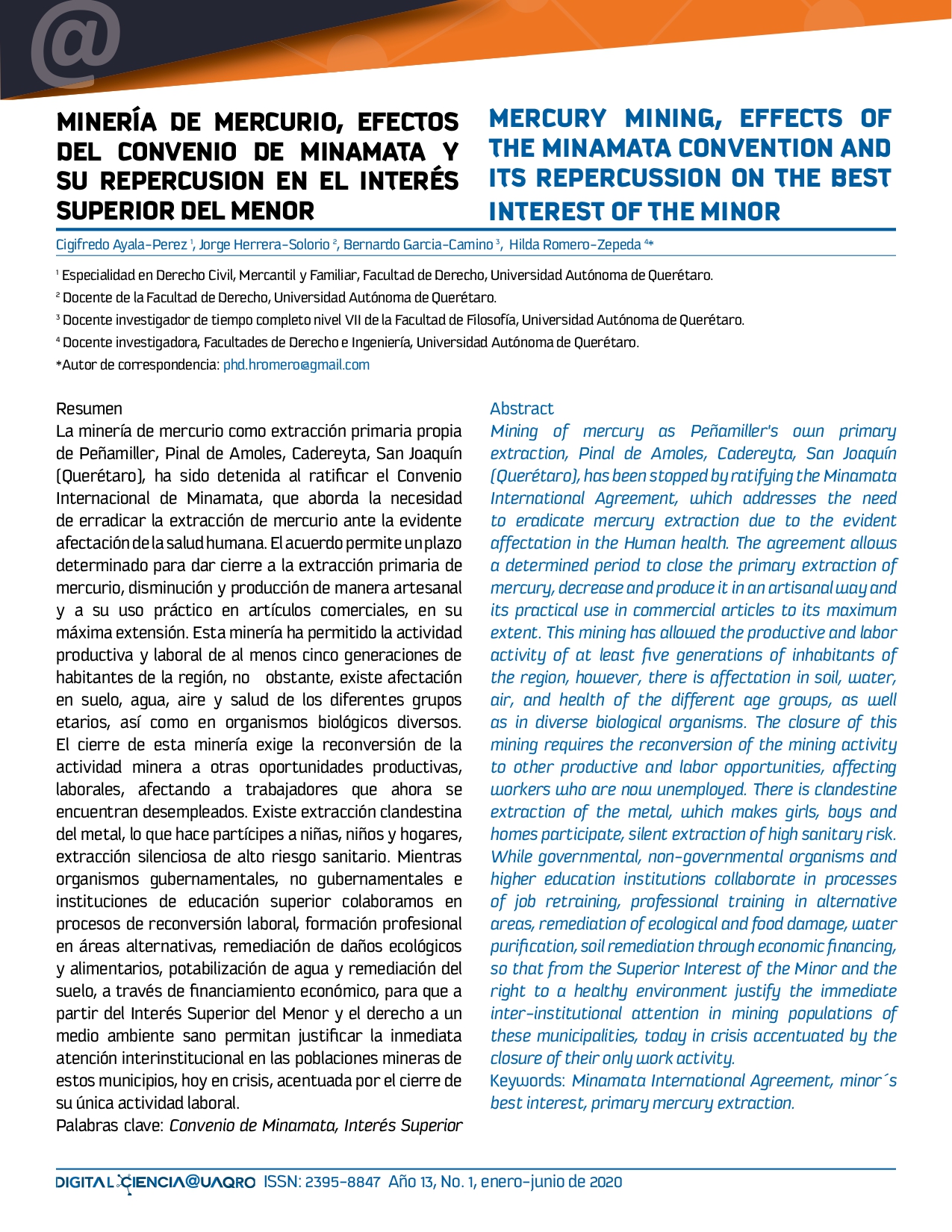Abstract
Mining of mercury as Peñamiller's own primary extraction, Pinal de Amoles, Cadereyta, San Joaquín (Querétaro), has been stopped by ratifying the Minamata International Agreement, which addresses the need to eradicate mercury extraction due to the evident affectation in the Human health. The agreement allows a determined period to close the primary extraction of mercury, decrease and produce it in an artisanal way and its practical use in commercial articles to its maximum extent. This mining has allowed the productive and labor activity of at least five generations of inhabitants of the region, however, there is affectation in soil, water, air, and health of the different age groups, as well as in diverse biological organisms. The closure of this mining requires the reconversion of the mining activity to other productive and labor opportunities, affecting workers who are now unemployed. There is clandestine extraction of the metal, which makes girls, boys and homes participate, silent extraction of high sanitary risk. While governmental, non-governmental organisms and higher education institutions collaborate in processes of job retraining, professional training in alternative areas, remediation of ecological and food damage, water purification, soil remediation through economic financing, so that from the Superior Interest of the Minor and the right to a healthy environment justify the immediate inter-institutional attention in mining populations of these municipalities, today in crisis accentuated by the closure of their only work activity

This work is licensed under a Creative Commons Attribution-NonCommercial 4.0 International License.

